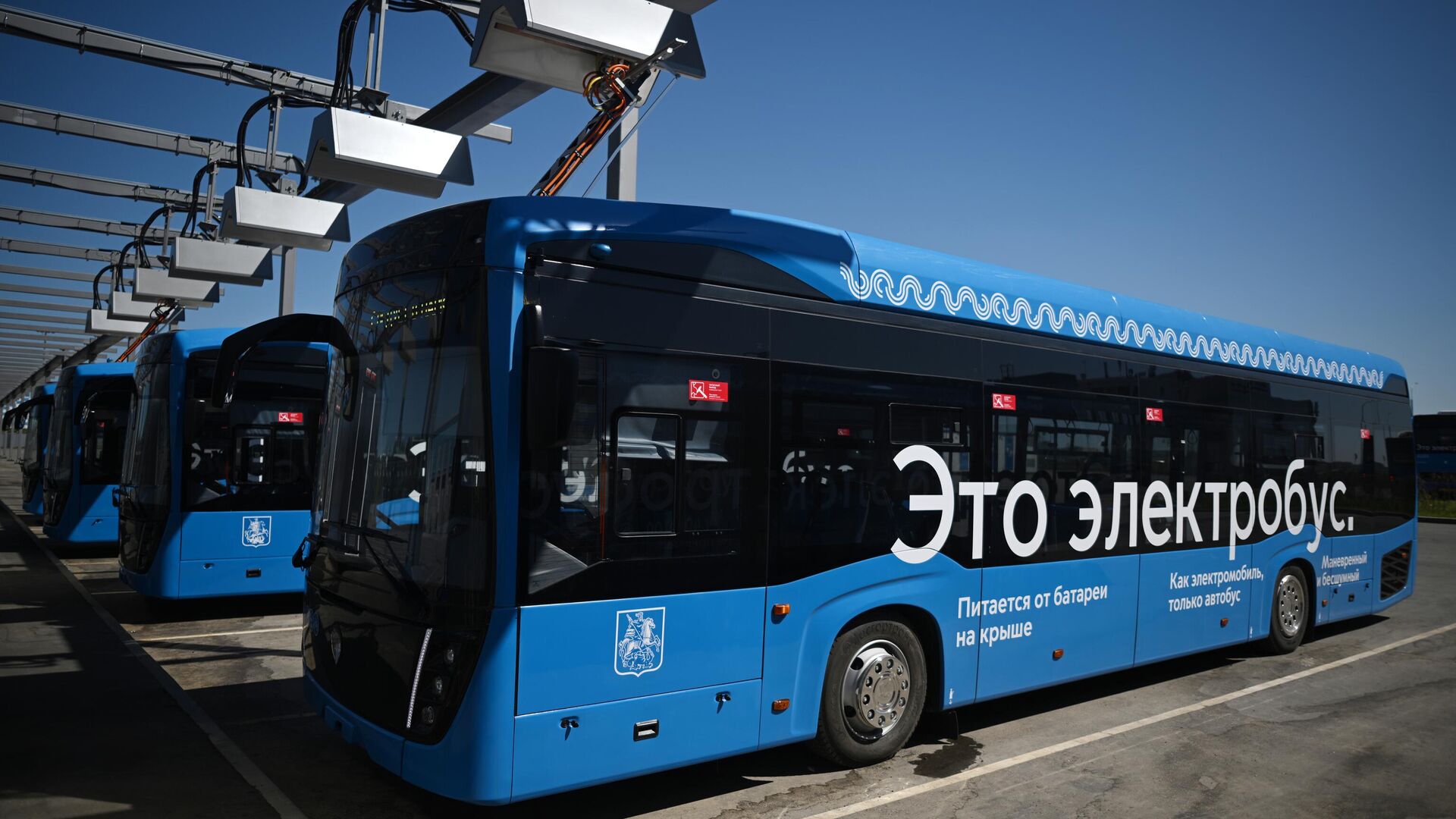https://sputnikglobe.com/20221130/electric-buses-in-moscow-use-biofuel-from-used-frying-oil-for-heating---company-1104908294.html
Electric Buses in Moscow Use Biofuel From Used Frying Oil for Heating - Company
Electric Buses in Moscow Use Biofuel From Used Frying Oil for Heating - Company
Sputnik International
MOSCOW (Sputnik) - The successor to McDonald's in Russia, Vkusno - i tochka, initiated the country's first project to process deep-frying oil into biofuel... 30.11.2022, Sputnik International
2022-11-30T17:04+0000
2022-11-30T17:04+0000
2022-11-30T17:04+0000
russia
moscow
electric bus
fuel
heating
https://cdn1.img.sputnikglobe.com/img/07e6/0b/1e/1104907608_0:160:3073:1888_1920x0_80_0_0_a8d4c9225bb9b949ff9058e87d6a19ce.jpg
"We started separating and recycling waste, and not just frying oil, a long time ago. We send about 5,000 tons of oil per year for processing, of which about 3,000 tons are used for the production of biodiesel fuel, which is used for heating electric buses. Today we are meeting all the needs of Mosgortrans [state-owned company operating bus and electric bus networks] during the heating season of 2022-2023. We are the first and only one in Russia who are implementing such a project," Korshunova said.The executive noted that used fryer oil is collected in the chain restaurants located in three federal regions of Russia.She said that after analyzing the first results of the project, the company can expand the number of restaurants to collect used frying oil specifically for processing into biodiesel.From December 2021 to March-April 2022, 20 metropolitan electric buses were involved in the tests, using biofuels made from deep-frying oil from Vkusno - i tochka for heating, Kristina Ten, the chairman of the Russian Association of Specialists and Enterprises engaged in the processing of oil and fat waste, said.Vitaly Danshin, Deputy Head of the Mosgortrans Energy and Innovation Projects Service, said that the use of biofuels can reduce the amount of carbon dioxide emissions into the atmosphere.Danshin noted that the project and purchase of biodiesel fuel will continue, and additional infrastructure for heating 1000 electric buses will be installed.
moscow
Sputnik International
feedback@sputniknews.com
+74956456601
MIA „Rossiya Segodnya“
2022
Sputnik International
feedback@sputniknews.com
+74956456601
MIA „Rossiya Segodnya“
News
en_EN
Sputnik International
feedback@sputniknews.com
+74956456601
MIA „Rossiya Segodnya“
Sputnik International
feedback@sputniknews.com
+74956456601
MIA „Rossiya Segodnya“
moscow, electric bus, fuel, heating
moscow, electric bus, fuel, heating
Electric Buses in Moscow Use Biofuel From Used Frying Oil for Heating - Company
MOSCOW (Sputnik) - The successor to McDonald's in Russia, Vkusno - i tochka, initiated the country's first project to process deep-frying oil into biofuel, already used for heating in Moscow electric buses during tests, Senior Director for Sustainable Development of the company Irina Korshunova told Sputnik on Wednesday.
"We started separating and recycling waste, and not just frying oil, a long time ago. We send about 5,000 tons of oil per year for processing, of which about 3,000 tons are used for the production of biodiesel fuel, which is used for heating electric buses. Today we are meeting all the needs of Mosgortrans [state-owned company operating bus and electric bus networks] during the heating season of 2022-2023. We are the first and only one in Russia who are implementing such a project," Korshunova said.
The executive noted that used fryer oil is collected in the chain restaurants located in three federal regions of Russia.
"Over 400 enterprises send oil, which first undergoes additional preparation, filtration, and then is sent to the only company engaged in such processing, JSC 'AVK,' in the city of Roshal. Then, the final customer, Mosgortrans, receives biodiesel from the plant," Korshunova added.
She said that after analyzing the first results of the project, the company can expand the number of restaurants to collect used frying oil specifically for processing into biodiesel.
From December 2021 to March-April 2022, 20 metropolitan electric buses were involved in the tests, using biofuels made from deep-frying oil from Vkusno - i tochka for heating, Kristina Ten, the chairman of the Russian Association of Specialists and Enterprises engaged in the processing of oil and fat waste, said.
Vitaly Danshin, Deputy Head of the Mosgortrans Energy and Innovation Projects Service, said that the use of biofuels can reduce the amount of carbon dioxide emissions into the atmosphere.
"During the trial period, from December to March, carbon dioxide emissions were reduced by 7.5 tons only on 20 electric buses... Calculations show that we could reduce this emission by 786 tons by taking into account the entire fleet of electric buses," Danshin said.
Danshin noted that the project and purchase of biodiesel fuel will continue, and additional infrastructure for heating 1000 electric buses will be installed.


